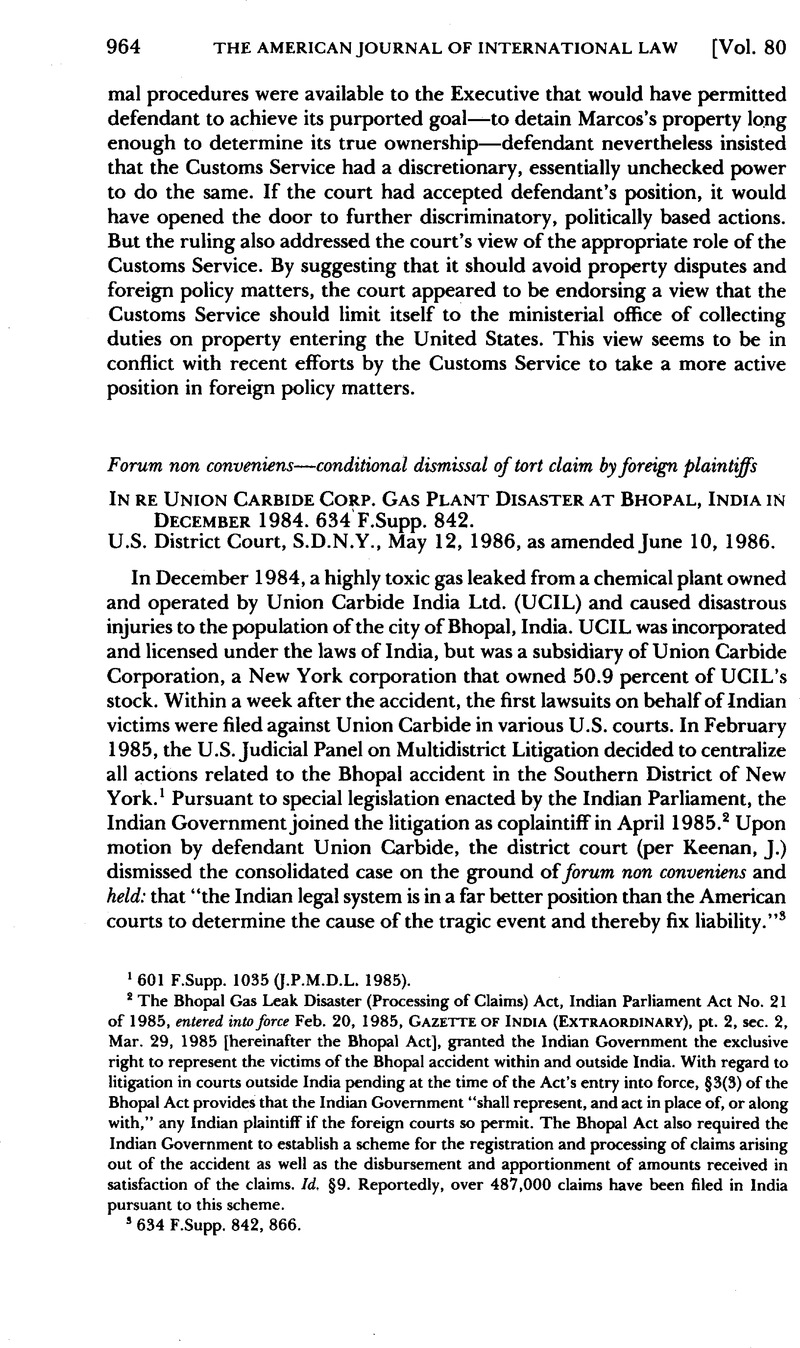Published online by Cambridge University Press: 27 February 2017

1 601 F.Supp. 1035 (J.P.M.D.L. 1985).
2 The Bhopal Gas Leak Disaster (Processing of Claims) Act, Indian Parliament Act No. 21 of 1985, entered into force Feb. 20, 1985, Gazette of India (Extraordinary), pt. 2, sec. 2, Mar. 29, 1985 [hereinafter the Bhopal Act], granted the Indian Government the exclusive right to represent the victims of the Bhopal accident within and outside India. With regard to litigation in courts outside India pending at the time of the Act’s entry into force, §3(3) of the Bhopal Act provides that the Indian Government “shall represent, and act in place of, or along with,” any Indian plaintiff if the foreign courts so permit. The Bhopal Act also required the Indian Government to establish a scheme for the registration and processing of claims arising out of the accident as well as the disbursement and apportionment of amounts received in satisfaction of the claims. Id. §9. Reportedly, over 487,000 claims have been filed in India pursuant to this scheme.
3 634 F.Supp. 842, 866.
4 Id. at 867.
5 Id.
6 330 U.S. 501 (1947).
7 454 U.S. 235 (1981).
8 634 F.Supp. at 845 (paraphrasing Gulf Oil Corp. v. Gilbert, 330 U.S. at 507).
9 634 F.Supp. at 848.
10 454 U.S. at 257 n.25.
11 634 F.Supp. at 865.
12 Id.
13 Id. at 867.
14 See Fitzpatrick, , “Reyno”: Its Progeny and Its Effects on Aviation Litigation, 48 J. Air L. & Com. 539, 542 (1983)Google Scholar.
15 Gulf Oil Corp. v. Gilbert, 330 U.S. at 504.
Plaintiffs appealed the order in its entirety (No. 86–318 (2d Cir. 1986)). Union Carbide appealed the condition requiring only Union Carbide to abide by U.S. discovery rules but not the Indian Government. The Indian Government cross-appealed.